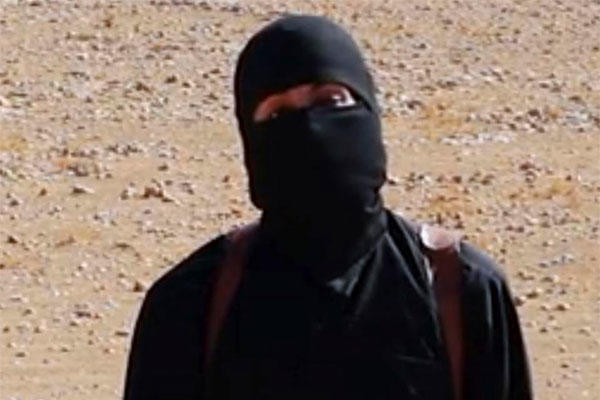The U.S. military was "reasonably certain" Friday that an MQ-9 Reaper drone firing an AGM-114 Hellfire missile killed the London-raised ISIS executioner and propagandist known as "Jihadi John."
Mohammed Emwazi, a British citizen dubbed "Jihadi John" for his narration of and participation in Islamic State execution videos, was believed to have been the individual who was targeted as he left a building Thursday night and entered a vehicle in the self-proclaimed ISIS capital of Raqaa in northeastern Syria.
The Hellfire missile hit the vehicle and killed Emwazi and another person believed to have been a friend or a driver for Emwazi, said Army Col. Steve Warren, a spokesman for Combined Joint Task Force-Operation Inherent Resolve.
Warren cautioned that confirmation of Emwazi's death would probably take weeks, but said, "We are reasonably certain that we killed the target that we intended to kill, which is Jihadi John. The weapons system hit its intended target." Even so, "It will take time to definitively declare whether we had success," he said.
Emwazi was not a tactician or a strategist in the ISIS hierarchy, Warren said, but his elimination was a "significant blow" to ISIS' image. "He was a primary recruitment tool. Killing him is probably making the world a safer place," Warren said in a briefing to the Pentagon from Baghdad.
Emwazi, who was born in Kuwait and raised in London, participated in the gruesome ISIS videos showing the murders of U.S. journalists Steven Sotloff and James Foley, U.S. aid worker Abdul-Rahman Kassig, British aid workers David Haines and Alan Henning, Japanese journalist Kenji Goto, and a number of other hostages.
A Syrian activist group, called Raqqa is Being Slaughtered Silently, said a missile hit Emwazi's car at about 11:50 p.m. local time. ISIS militants then ringed the car and two others than had been destroyed in the Hellfire strike to prevent any photos or videos, the group said.
White House Press Secretary Josh Earnest said that the families of the hostages who were killed were notified of the Hellfire strike soon after it took place and before the Raqaa attack was made public.
Related Video:
In a statement later, Foley's parents, John and Diane Foley, said of the military action, "If only so much effort had been given to rescuing Jim and the other hostages who were subsequently murdered by ISIS, they might be alive today."
In separate briefings, Secretary of State John Kerry and British Prime Minister David Cameron both said they could not confirm Emwazi's death while defending the decision to target him.
Going after Emwazi was "an act of self-defense" and "the right thing to do," Cameron said. "We have been working, with the United States, literally around the clock to track him down," he said. "This was a combined effort, and the contribution of both our countries was essential. Emwazi is a barbaric murderer."
Kerry said, "We are still assessing the results of this strike, but the terrorists associated with Daesh need to know this -- your days are numbered, and you will be defeated," referring to another name for the terrorist group.
--Richard Sisk can be reached at Richard.Sisk@military.com.




























